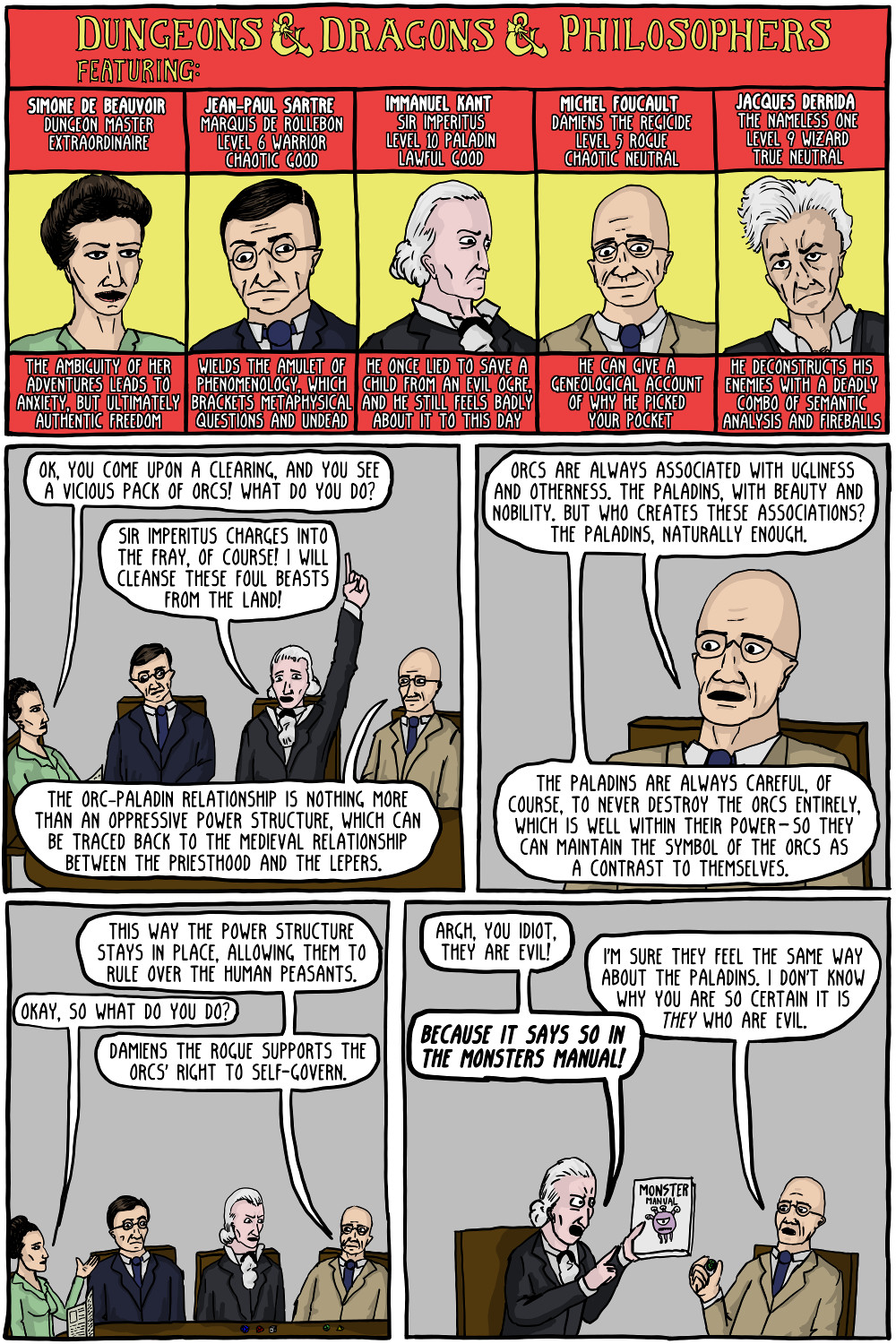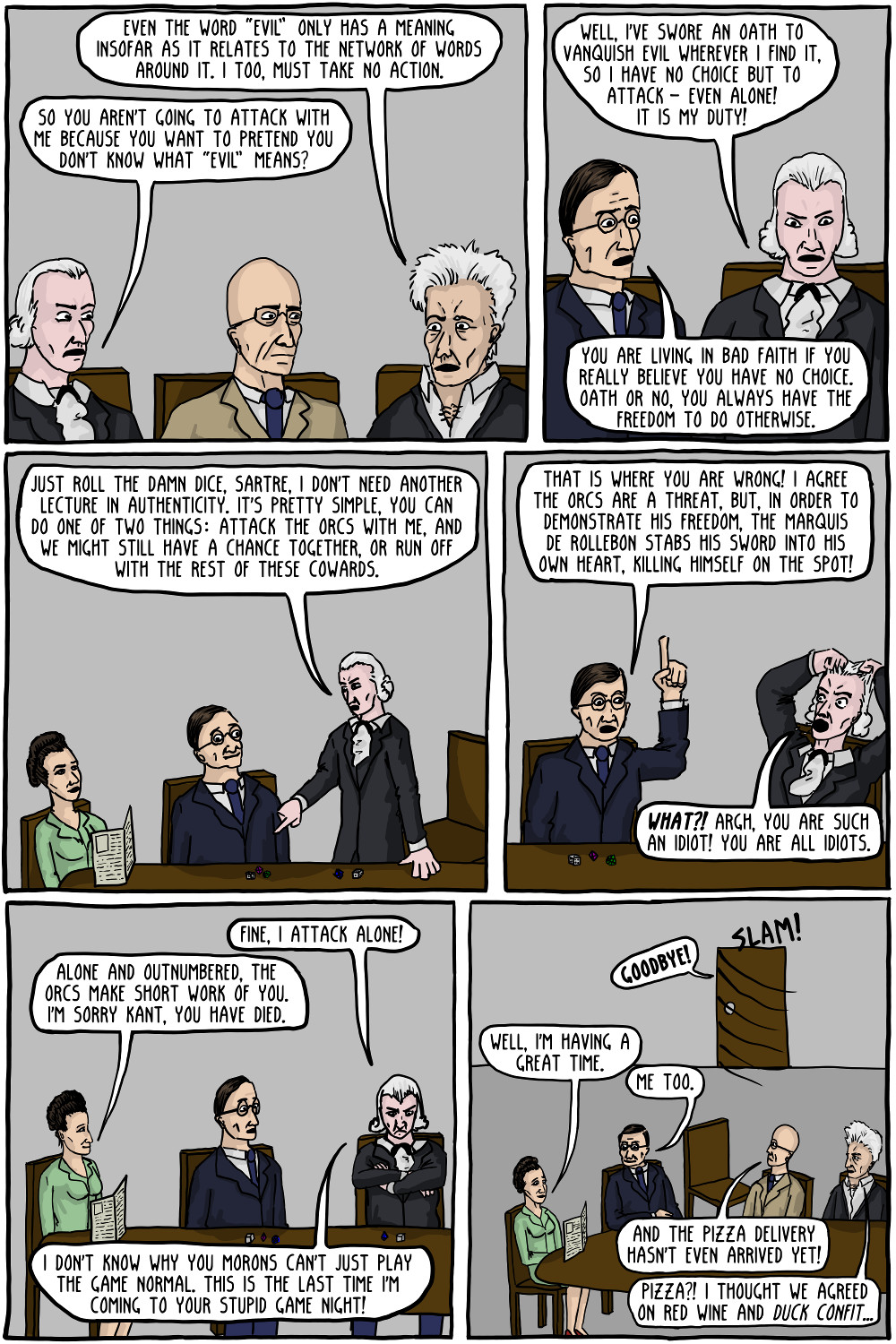DemoMonkey
Hero
More on the original topic...
I think the default (not "allowable", just "default") moral philosophy of the game has actually changed between editions. Not just due to differing demographics of the players, but due to different assumptions/biases by the designers.
0E was more Consequentialist than anything
1E leaned more into Deontological
2E dialed that back a little and leaned more Utilitarian
3E veered hard back into Deontological
4E didn't really have a position on the matter, by design
5Es position seems to be "Whatever you want but NOT-Deontological"
Fortunately no one will argue angrily with any of these assessments.
I think the default (not "allowable", just "default") moral philosophy of the game has actually changed between editions. Not just due to differing demographics of the players, but due to different assumptions/biases by the designers.
0E was more Consequentialist than anything
1E leaned more into Deontological
2E dialed that back a little and leaned more Utilitarian
3E veered hard back into Deontological
4E didn't really have a position on the matter, by design
5Es position seems to be "Whatever you want but NOT-Deontological"
Fortunately no one will argue angrily with any of these assessments.
Last edited:




